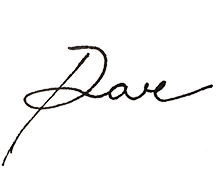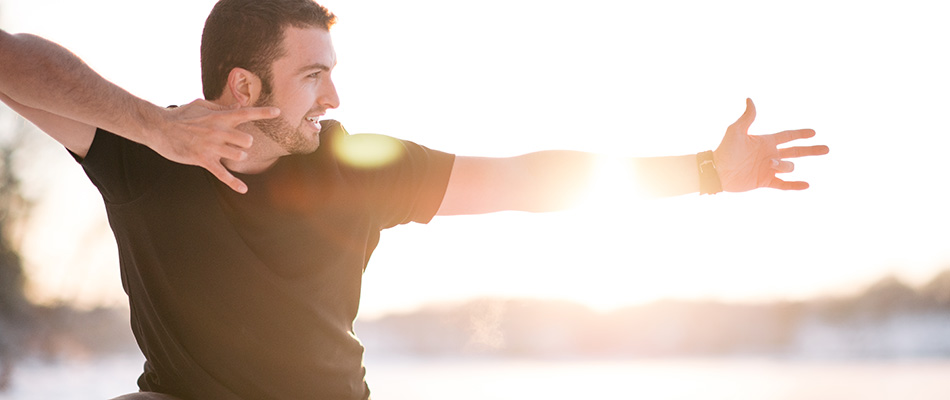On Thanksgiving Day in 2011, I walked into my third ever yoga class — and promptly turned around, and walked out.
But the teacher saw me and followed me out of the room and onto the street.
“We’ll make room for you,” she said.
Somehow, my soon-to-be teacher Debbie resisted my polite arsenal of dismisses like, “That’s okay,” “It’s no big deal,” and “Don’t worry about it.” She insisted. And in the process, she stopped me from avoiding what I was resisting.
I first shared this story of how I got into yoga — all thanks to an insistent and kind teacher — when that same teacher asked me to join the teaching staff at that same yoga studio, Laughing Elephant Yoga, in my home state of Rhode Island.
Four years later, I was still reflecting on what it was that I was actually resisting — and avoiding — when I turned around and walked out of that Thanksgiving yoga class in 2011.
What I came to learn was that it was shame.
I was ashamed.
I was ashamed of using my voice, of being heard, of asking for help. I was ashamed of being seen. Some part of me was so afraid, so resistant, that I would prefer to shut out the possibility of others actually receiving me in a gesture as small as making room for my mat.
When faced with the choice, I’d have rather avoided it altogether.
What’s astounding is that, at this time, I never realized how this subtle, subconscious level of shame was derailing my biggest goals.
Less than two months prior, I had written and published my first book, Lead Without Followers, which I hoped would springboard my young career as a writer and author to a new level. I wanted to be a best-selling author someday. In the two-plus years since I had left my job in politics, this book and its philosophy were my saving grace. It was all for this book, this notion, these ideas, that one could be a leader without followers — simply by leading by example.
But my first book was not a good book.
(So much so, that I parodied it on April Fool’s Day a few years ago.)
Really, it couldn’t be — not with how young my writing skills were, not with how I failed to gather help to write the book, not with how I challenged myself to make it as good as it possibly could have been.
And, not with how I was living my life.
I was stewing in shame.
It’s no wonder why a mad sprint to write a draft of a book felt good enough to self-publish — I was ashamed that it could have been shit, and avoided the possibility altogether.
I failed to bring the editors, proofers and test readers I needed into the process because I was hiding it — this is so bizarre, so backwards, and strange to admit, I know — actually hiding a book that I planned to publish and wanted others to read and enjoy.
How could a book be good if I was hiding it, and myself, from the world?
How could I bear to make room for myself in a crowded yoga class if I would rather disappear instead?
In the weeks after my first book’s dud of a release, I sought out yoga. I was heartbroken that the book wasn’t as good as I hoped it would be — and half-defiant, half-ashamed of the expectations that others had for my first real publication.
In the wake of Lead Without Followers, I was desperate to find a mind-body practice like yoga that might help me feel better.
And what I was immediately thrust into when I walked into my third ever class?
Facing my shit. Owning my baggage. Confronting my subconscious shadow of shame, and having to face it down.
Because if I didn’t lead by example in this way, there was no shot that my writing might ever help people.
If I couldn’t take ownership of what I was avoiding in my personal life — struggles, resistance, discomfort, that were forcing me away from decisions I knew were in my best interest, like yoga — how could I ever be a leader in my life? A teacher? A giver? A servant?
… the very things that, in my first book, I was arguing to the world that we each ought to become?
Is it any wonder why my first book wasn’t as good as it could have been, if the writer behind the words was fractured in his own shame and self-doubt?
Is it any wonder that, at the same time of my failed first book, I myself wanted to disappear in anonymity?
On Thanksgiving Day in 2011, a yoga teacher helped me confront what was far easier for me to avoid.
In the process, I discovered two incredible things about myself, and my soul:
I discovered my subtle, subconscious shadow of shame: a deep, powerful, karmic source of learning that I needed to confront, learn, then unlearn, and begin to heal… with or without followers.
In turn, I learned one of my biggest desires in life, and in my work: to be seen.
My shame was derailing this fundamental desire that I was still coming to realize about myself. It was facing my “yoga shame” that helped me discover something important to my soul:
I was being called to be fully witnessed by others.
Feeling seen and witnessed for the truth of who I was was a big reason why I started writing in high school. Writing empowered me to feel witnessed and fully viewed for my beliefs, ideas, spirit and soul. Feeling seen was why I wrote at all. And “seen” was what was always motivating me to write. So much so, that this medium, this art form, was the one by which I sought to serve others.
These discoveries would change the course of my life.
Fast forward more than four years.
Today, I’m a certified yoga teacher. I’ve been practicing with Debbie ever since she brought me back into that studio classroom. She’s now a close friend. I’ve been teaching yoga for over 18 months (at that same studio) and have led over 100 hours of classes for hundreds of students on three continents.
Now, is it too simple to say that all of this is the result of one moment – when Debbie pulled me back into that Thanksgiving Day class?
Probably.
And yet… if I’m being honest with you?
I can’t say for certain if I would have ever gone back to a yoga class after that day.
It would probably have been too easy to keep avoiding yoga from that point forward. It could have been too easy to just let my shadow of shame do its dirty work — and I’d have just said, “Oh, that’s not for me. It’s too crowded there. I’m not sure if yoga is legit or not…”
Whatever excuse, any excuse, would have been more comfortable than realizing that my shame was the reason I turned around and left the class that day.
That my shame was why my first book wasn’t what it could have been.
That being ashamed, and wanting to hide from others, was keeping me back from self-actualizing like I dreamed.
The longer we avoid something, the easier it becomes to keep avoiding what feels uncomfortable. The human mind is excellent at making up excuses to avoid what’s uncomfortable. We find (even the most valid of) reasons to avoid the discomfort. We recite stories and rationale; we’d rather shut out the discomfort than face it.
Even if “facing it” is as simple as spending 10-20 minutes in dedicated creative time every day.
...or asking two people to move their yoga mats a few inches for you.
Rather than succumbing to shame, I wanted to learn from it.
So whenever I felt ashamed — whenever I wanted to hide, avoid, or run away — I did the opposite.
Where it was easier to avoid, I turned.
I began to write more vulnerable pieces on my blog that exposed who I was deep down and what I believed. I started getting bolder and more confident in my self-expression.
Personally and creatively, I made strides to cultivate self-love and self-acceptance. I practiced accepting love from others without feeling ashamed about it. I found teachers in soulmates and friends who were kind enough to give to me deeply; each relationship gave me opportunities to face my shadows of shame, and instead choose to receive their love.
My shadow showed me the way.
Either I could face my shame and start to conquer it, or my shadow could derail my biggest goals and dreams in life — and even some others that I hadn’t yet discovered, like teaching yoga.
This is how my shame became my own personal teacher.
(And I sure ain’t ashamed of that!)
Today, as a teacher, as a writer, as a yogi, I’m doing all that I can to help students, creatives, and good souls face what they’re avoiding — even unbeknownst to them.
Gently. Positively. Openly and compassionately.
(And hopefully, by leading by example — the only way I’ve ever known how.)
Indeed, our shadows can show us all the way forward.
Edging into what we’re avoiding, resisting, fearing and loathing can show us exactly what we need to learn the most.
Oh, and it’s a fine way to “lead without followers,” too.

P.S. — Want to become a student of what you’re avoiding? I can help show you how. Check out my writing course, Unavoidable Writing: Turn What You’re Resisting Into Your Refuge. It’s a powerful container for personal healing and soulful growth at the intersection of creative self-expression.
